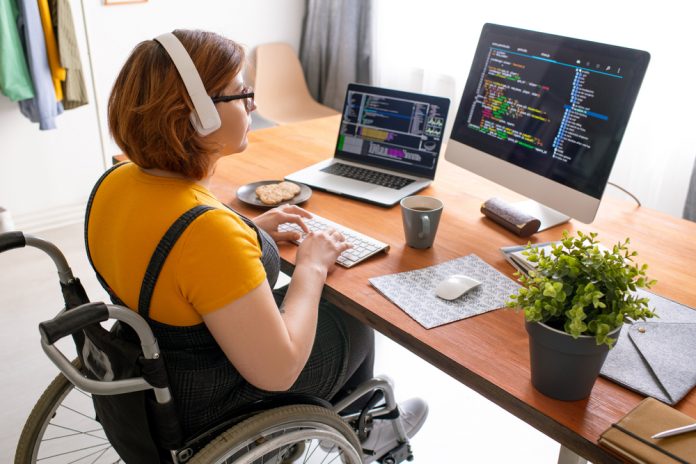
Around ten percent of the world’s population live with a disability – and this rises to 26 percent for working-age people in the U.S. Yet only 17.9 percent of disabled people in the U.S. are in employment, according to recent figures from the Bureau of Labor Statistics. Even though organizations considered ‘disability champions’ have been found to have double the net income and 30 percent higher profit margins compared with other companies.
Here are some practical ways that learning professionals can support organizations in recruiting more people with disabilities:
-
Embed Inclusion and Accessibility Within Your Training for Hiring Managers
One of the main reasons that a disabled candidate isn’t hired is pessimistic views and biases on the employer’s part – not the candidate’s ability to do the job. These biased beliefs often come from a place of benevolence – for example, believing that a disabled candidate may be at physical or emotional risk if offered the job. So, all managers must receive training in disability inclusion and accessibility, which should include ensuring accessible and inclusive role descriptions, accessible interviewing, and how to prevent biases like human bias from affecting their decision-making. This learning development should be embedded within hiring best practices to ensure hiring managers see it as part of hiring the best candidate for the role, not special treatment for disabled candidates.
-
Demonstrate Disability Inclusion
Although a hiring manager should never be making a hiring decision based on adjustment requirements for a role solely on a candidate’s capabilities, the perception of disability inclusion within an organization will likely affect their decision. So, ensuring disability inclusion is demonstrated and embedded across the organization will help. This means going beyond promoting your disability-relevant policies and practices – for example, asking about adjustments for all your learning programs. Use storytelling to showcase the disability-inclusive experience of your organization, processes, and culture. It’s even better if senior leaders and role models are willing to share their stories as part of your learning and development programs.
-
Provide Hiring Managers with Just-in-Time Learning Modules on Different Disabilities
Hiring managers don’t need to be experts in different kinds of disabilities. But they will need the proper support at the right time to understand how to implement adjustments when requested and have a level of awareness around the need for that adjustment. For example, if a candidate has asked for assistive software to complete an assessment, they should know what that means and how to implement it. The best way to do that is to ensure that hiring managers have access to online learning modules as and when they need them – and know where to find them.
-
Recruitment Teams Should Know Their Local Responsibilities and How to Achieve Them
Although recruitment teams also shouldn’t have to be disability experts, they should be experts in the equality and labor legislation within their region related to disability and reasonable adjustments and how to advise their hiring managers accordingly. For example, they should be aware of local disability laws and local disability quotas and their organization’s approach to meeting them. They should feel confident explaining these requirements to hiring managers and ensuring they’re completed. Therefore, this information and skills should be embedded within the onboarding and skills development for the role.
The key to disability-inclusive recruitment is to be authentic in genuinely wanting to enable an inclusive and accessible experience. It’s not about checklists but about creating a belief, accepting, and belonging culture. Learning teams are integral to making this culture by embedding inclusion and accessibility in everything they do.




